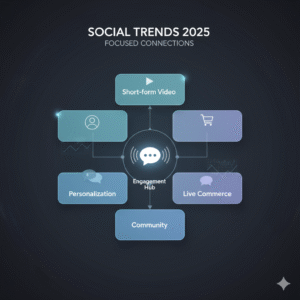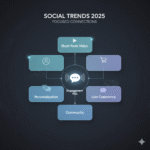Table of Contents
Introduction
Gen Z—digital natives who grew up with smartphones, cloud apps, and instant access to information—is now entering (or already in) the workforce. What sets them apart isn’t just their tech fluency, but how they’re driving AI adoption in ways older generations never imagined. This shift is transforming office culture, workflows, leadership expectations, and what productivity looks like.
Why Gen Z’s AI Adoption Is Unique
- A recent survey by International Workplace Group (IWG) found that nearly two-thirds of Gen Z employees are helping older colleagues learn to use AI tools, bridging gaps in skill and generational comfort. CNBC
- Gen Z workers overwhelmingly believe that AI significantly boosts efficiency: about 86% said AI has made them more efficient, and 87% believe it helps their careers. CNBC
- According to reports, Gen Z is more likely to self-teach AI skills. In one UKG study, ~70% of Gen Z workers said they taught themselves the AI tools they use at work, and ~90% believe AI helps them save time. Complete AI Training
- Comparative usage: Gen Z uses AI tools more frequently and in more varied ways than older cohorts. For example, the Randstad Workmonitor survey shows 34% of Gen Zs using AI for work-related tasks weekly compared to lower rates for Millennials and much lower for Gen X & Boomers. HRD America
How Gen Z Is Reshaping Office Culture
- Reverse Mentorship & Flattened Hierarchies
Gen Z isn’t just following direction—they’re teaching back. Younger employees act as mentors for older colleagues, especially in AI and digital tool usage. This creates a more collaborative culture where knowledge flows both ways. CNBC+1 - Efficiency Gains in Daily Work
AI tools are being used to automate repetitive tasks: summarizing reports, drafting emails, transcribing meetings, organizing workflows. Gen Z highly values tools that free time for strategic, creative or higher-level tasks. CNBC+2Azilen Technologies -+2 - Changing Expectations of Leadership & Management
Many younger employees prefer turning to AI for task guidance rather than always going to their managers. In Forbes, ~46% of Gen Z said they sometimes rely more on AI than on their supervisors for certain work-related questions. This shift is pushing leadership to evolve: they need not just manage outcomes, but enable tool adoption, provide guidance on AI ethics, and foster environments for experimentation. Forbes - Demand for Clear Policies, Ethical Use, Training
Despite high adoption, there’s often a gap in formal organizational policies around AI: what’s allowed, guidelines for data privacy, bias, security, etc. Gen Z workers report feeling some unease when using personal AI tools or aren’t sure where the lines are. UiPath+1 - Cognitive & Social Skills Are Growing in Value
As AI automates routine tasks, there’s higher demand for human-centered skills: critical thinking, emotional intelligence, collaboration. Jobs are increasingly judged not just by output but by creativity, innovation, ability to work across teams. Roles that use AI often require higher-order cognitive and social skills. arXiv
Risks & Challenges
- Overreliance & Skill Atrophy: If too many tasks are automated, some soft skills or critical decision-making abilities may stagnate.
- Job Displacement Anxiety: Even though many Gen Zers adopt AI, there is real concern that AI might replace roles or limit opportunities in entry level or routine tasks. new.aithor.com+1
- Leadership Lagging Behind: Some managers and execs underestimate how extensively Gen Z (and others) are already using AI. This can lead to misaligned expectations, lack of support, or missed opportunities. McKinsey & Company+1
- Policy, Privacy & Ethical Issues: Use of personal AI tools at work without oversight, bias in AI outputs, data privacy, security—all are potential risk areas.
What Companies Can Do to Harness This Shift
- Invest in AI Literacy & Training
Make it safe for employees to explore AI tools. Provide training on what tools are good for, what the risks are, and establish best practices. - Develop Clear, Ethical AI Policies
Clarify acceptable usage: what tools are allowed; how to handle data; how to evaluate AI outputs for accuracy and bias. - Encourage Cross-Generational Collaboration
Promote programs where Gen Z shares tool-tips, older colleagues share domain expertise. Reverse mentorship works. Consider internal “AI champions.” - Adjust Leadership & Performance Metrics
Value creativity, innovation, and impact over volume of output. Reward employees who effectively leverage AI to boost productivity or innovation. - Foster a Culture of Experimentation
Encourage trying new tools, sharing learnings, even failure. Make it known that experimentation is valued.
Conclusion
Gen Z is doing more than adapting to workplace AI—they’re leading it. With their comfort using tech, willingness to experiment, and drive to make work more efficient and meaningful, they are reshaping what office culture looks like. For organizations, the message is clear: adapt or risk falling behind.









